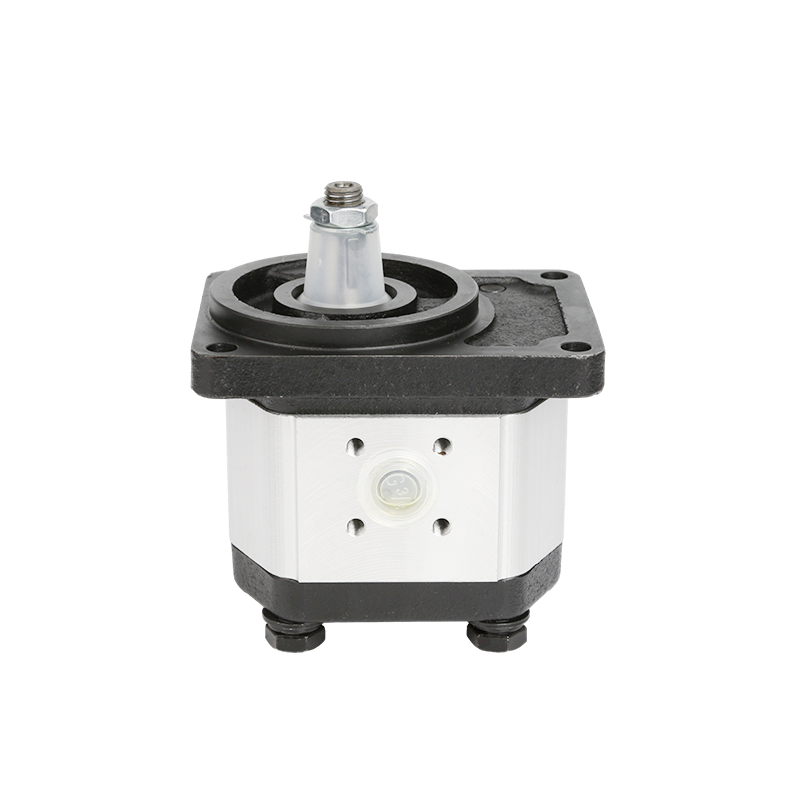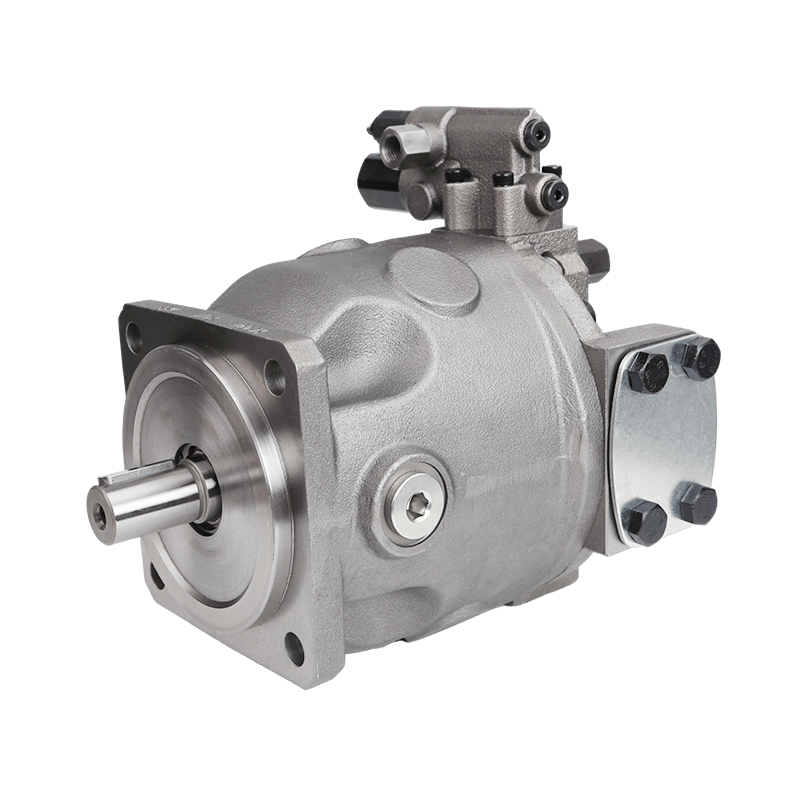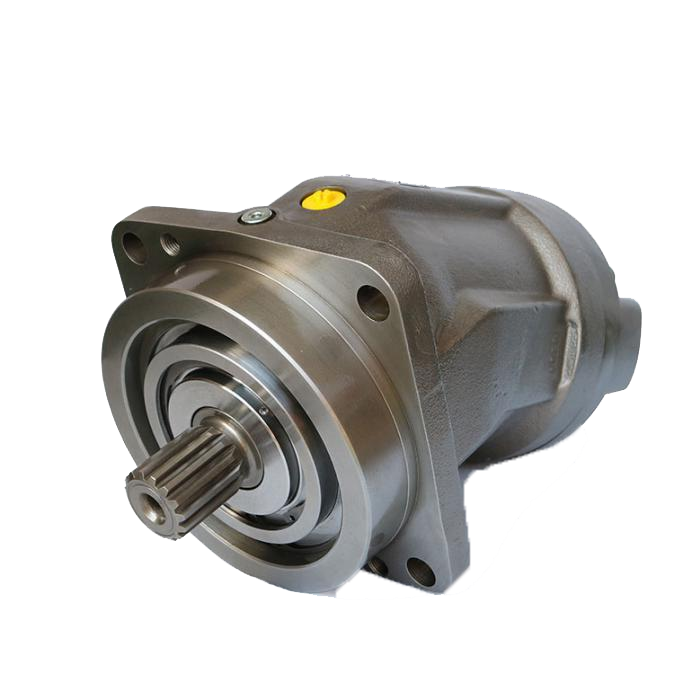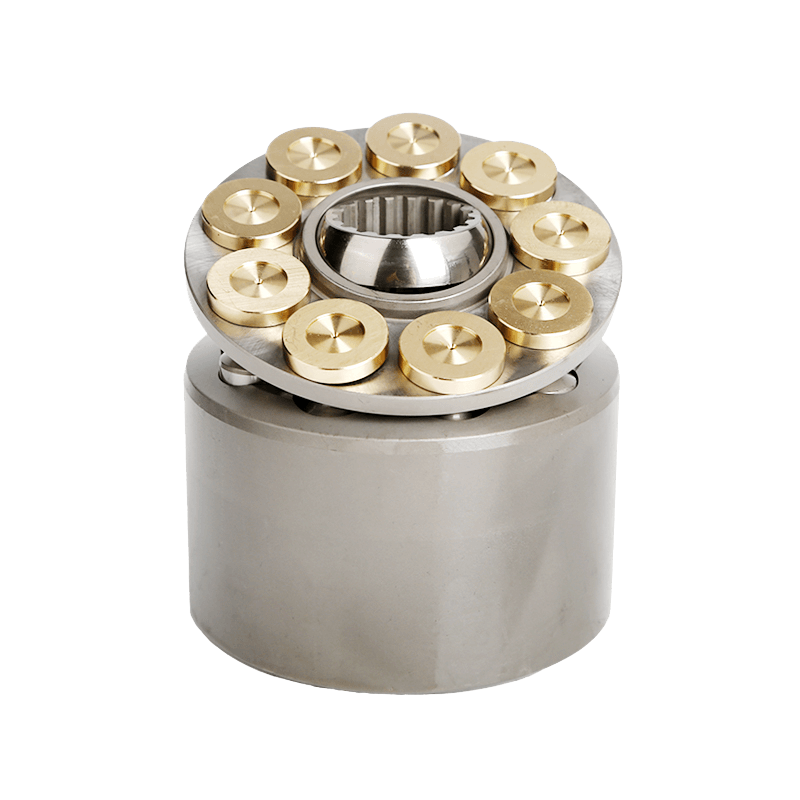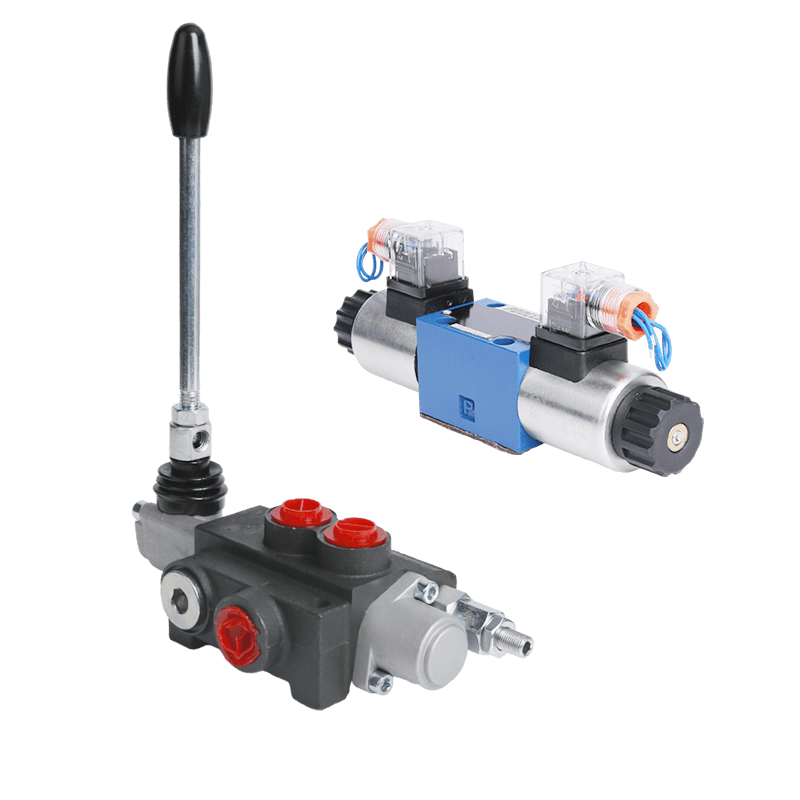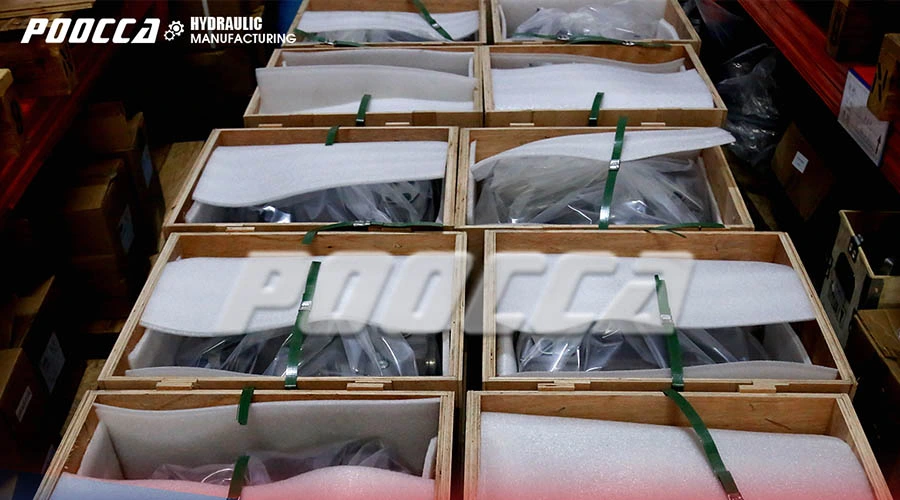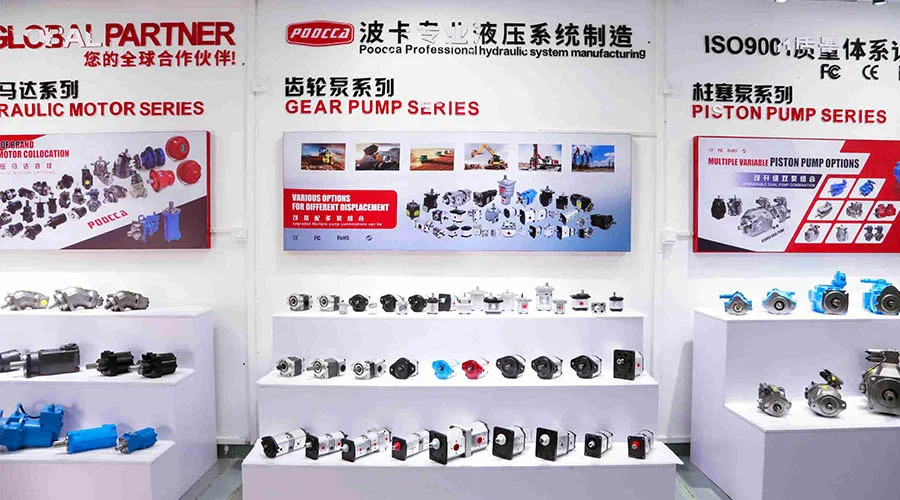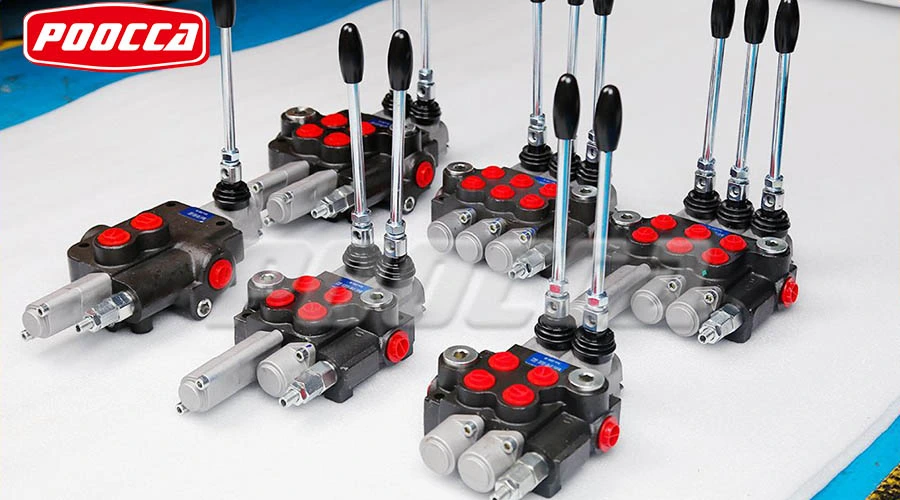Hydraulic systems are integral to many industries, including manufacturing and construction, because they can efficiently transfer energy through fluids. It is vital to understand the main hydraulic components to optimize the performance and maintenance of these systems. By examining each component and its role, we can develop a thorough understanding of how hydraulic systems function and why they are essential in different applications.
Understanding Hydraulic Systems
Overview of How Hydraulic Systems Work
Hydraulic systems leverage the principles of fluid mechanics to transmit power and generate motion. These systems typically use a confined fluid, such as oil, to transfer force from one point to another. The process begins with a hydraulic pump that pressurizes the fluid, which then flows through hydraulic components like valves and cylinders to perform work. The system’s efficiency and reliability depend greatly on the interaction and quality of these components.
POOCCA Hydraulic (Shenzhen) Co., Ltd. was established in 2006 and has four companies in Hong Kong, Guangdong, Jiangsu and Zhejiang. We are a comprehensive hydraulic service company specializing in the research and development, manufacturing, maintenance and sales of hydraulic pumps, motors, valves and related parts. With extensive experience in providing power transmission and drive solutions to hydraulic system users around the world, we have a strong reputation in the industry.
Importance of Hydraulic Systems in Various Industries
Hydraulic systems are vital in diverse sectors, including construction, aerospace, automotive, and industrial manufacturing. For instance, in construction, hydraulic excavators and loaders would be unable to function without these systems. In aviation, hydraulic systems control everything from wing flaps to landing gear. This widespread applicability underscores the importance of understanding and maintaining the key hydraulic components.
Main Components of the Hydraulic System
Hydraulic Pumps
Types of Hydraulic Pumps
Hydraulic pumps come in various types, each suited for specific applications. The main categories include gear pumps, vane pumps, and piston pumps. Gear pumps are straightforward and affordable, making them popular for lower-pressure applications. Vane pumps offer better efficiency and are used in moderate-pressure scenarios, while piston pumps are ideal for high-pressure applications due to their robustness and efficiency.
Key Functions of Hydraulic Pumps
The main role of hydraulic pumps is to transform mechanical energy into hydraulic energy by pressurizing the fluid within the system. This pressurized fluid is subsequently circulated to other hydraulic components, allowing the system to execute tasks such as lifting, pushing, and rotating. The efficiency and performance of the entire hydraulic system are greatly reliant on the pump’s functionality and condition.
Hydraulic Motors
Difference Between Hydraulic Pumps and Motors
Although both hydraulic pumps and motors are integral to hydraulic systems, they serve opposite functions. While hydraulic pumps convert mechanical energy to hydraulic energy, hydraulic motors do the reverse by converting hydraulic energy back into mechanical energy. This complementary relationship is crucial for achieving controlled and efficient motion within the hydraulic system.
Applications of Hydraulic Motors
Hydraulic motors are used in a variety of applications where controlled rotational motion is required. They are essential in industrial machinery, conveyor systems, and mobile equipment such as forklifts and agricultural machinery. Their ability to deliver high torque at low speeds makes them highly efficient for tasks requiring precise control and substantial force.
Hydraulic Cylinders
Types of Hydraulic Cylinders
Hydraulic cylinders, or actuators, are available in several types, including single-acting, double-acting, and telescopic cylinders. Single-acting cylinders apply force in one direction only and require a return mechanism, while double-acting cylinders can apply force in both directions, making them more versatile. Telescopic cylinders, with their ability to extend in multiple stages, are ideal for applications requiring long strokes within compact spaces.
Role of Cylinders in a Hydraulic System
The main purpose of hydraulic cylinders is to transform hydraulic energy into linear motion. This operation is essential in areas such as construction equipment, manufacturing machinery, and automotive systems where accurate linear movement is required. The effectiveness of the cylinder directly affects the performance of the system, making it crucial to ensure proper maintenance and selection.
Hydraulic Valves
Types of Hydraulic Valves
Hydraulic valves are critical for controlling fluid flow and direction within the system. The main types include check valves, which allow flow in one direction only; relief valves, which protect the system from excessive pressure; and directional control valves, which manage the flow path of the fluid. Each valve type plays a specific role in ensuring the system operates safely and efficiently.
Hydraulic Fluid
Properties and Functions of Hydraulic Fluid
Hydraulic fluid is the lifeblood of any hydraulic system, performing several key functions. It transmits power, lubricates moving parts, removes heat, and protects against corrosion. The fluid’s properties, such as viscosity, lubricity, and thermal stability, are critical for maintaining system performance and longevity.
Maintenance Tips for Optimal Performance
To ensure the hydraulic system operates optimally, regular maintenance of the hydraulic fluid is essential. This includes monitoring fluid levels, checking for contamination, and replacing the fluid according to the manufacturer’s guidelines. Proper filtration is also crucial to remove particles and impurities that can cause wear or damage to the hydraulic components. Regular maintenance helps extend the lifespan of the system and prevents costly downtime.
By grasping the primary hydraulic components and their roles, one can more fully appreciate the intricacy and effectiveness of hydraulic systems. This knowledge not only assists in the design and choice of systems but also in the continuous maintenance and problem-solving required to ensure these crucial systems operate efficiently.
Ensuring the Longevity of Your Hydraulic Components
Regular Maintenance Practices
Regular maintenance is crucial for ensuring the longevity of your hydraulic components. Scheduled maintenance practices should include frequent inspections of the system to detect any early signs of wear or damage. This can prevent minor issues from escalating into major failures. It is advisable to follow a well-structured maintenance schedule that includes tasks such as checking hydraulic fluid levels and ensuring all moving parts are properly lubricated.
Another important maintenance practice is keeping the hydraulic fluid clean. Contaminated fluid can cause significant damage to the internal hydraulic components, leading to system inefficiency and possibly even catastrophic failure. Therefore, it is essential to replace or filter the fluid regularly and ensure a proper filtration system is in place. Additionally, monitoring the system’s filters and replacing them as needed can significantly enhance the life span and performance of the hydraulic system.
Proper storage of spare hydraulic components and tools is also necessary. Keeping them in a clean and dry environment protects them from contaminants and environmental damage. Implementing these maintenance practices not only enhances the operational efficiency of hydraulic systems but also reduces downtime and maintenance costs over the long term.
Common Issues and Troubleshooting Tips
Despite regular upkeep, hydraulic systems can still face several problems that may interrupt their functionality. A frequent issue is fluid leakage, which can stem from deteriorated seals or fractured parts. Routine inspections can assist in detecting leaks promptly, and utilizing appropriate sealing methods during repairs or when replacing components can help avoid the problem from recurring.
Overheating is another issue that can affect hydraulic systems. This can happen due to excessive load, poor fluid quality, or inadequate cooling mechanisms. To troubleshoot overheating, ensure that the system is not being overworked beyond its capacity, verify the state and quality of the hydraulic fluid, and check the cooling system for any blockages or malfunctions.
Another frequent issue is sluggish or erratic system performance, often caused by air entrapment or contamination within the fluid. Air bubbles can considerably affect system efficiency and performance. Bleeding the system to remove trapped air and using high-quality fluids can mitigate this problem. Ensuring the hydraulic fluid is free from contaminants, such as dirt and metal particles, can also alleviate performance issues.
Lastly, unusual noises, such as banging or hissing, can indicate underlying problems within the hydraulic components. These sounds often point to issues like cavitation, where vapor bubbles form in the fluid, or mechanical wear and tear. Identifying the source of these noises through thorough inspections can prevent significant damage down the line. Regularly monitoring and addressing these common issues promptly helps maintain optimal system performance and extends the life of the hydraulic components.
Grasping the intricacies and providing diligent care for hydraulic systems, coupled with establishing routine maintenance and diagnostic measures, is essential for maintaining the effectiveness and durability of hydraulic components. This preventive strategy not only boosts the system’s functionality but also reduces expenses related to repairs and downtime, guaranteeing the smooth operation of hydraulic systems across diverse industrial uses.
Conclusion and Final Thoughts
Recap on the Importance of Key Hydraulic Components
Understanding the key hydraulic components and their functions is vital for anyone involved in industries that rely on hydraulic systems. These components—including hydraulic pumps, motors, cylinders, valves, and fluids—are the building blocks of hydraulic machinery and are crucial for transferring energy efficiently. Without well-maintained and properly functioning hydraulic components, the performance and reliability of these systems can be severely compromised. Regular maintenance practices, early detection of potential issues, and proper troubleshooting are all essential steps in ensuring these components operate seamlessly.
Future Trends in Hydraulic Technology
The landscape of hydraulic technology continues to evolve, driven by advancements in materials science, digital controls, and environmentally-friendly practices. Future trends suggest that hydraulic components will become increasingly sophisticated, integrating more smart technologies to enhance performance and monitoring. Innovations like sensor-equipped components that provide real-time data on system health are set to offer new levels of precision and efficiency.
Another significant trend is the development of eco-friendly hydraulic fluids. As industries focus more on sustainability, research into biodegradable and less toxic hydraulic fluids is advancing. These fluids not only reduce environmental impact but also improve the overall system’s health by reducing wear and tear on components.
Electro-hydraulic systems, which integrate the strength of hydraulics with the accuracy of electronic controls, are increasingly gaining popularity. This combined method can result in enhanced energy efficiency, superior control, and lower emissions, in line with broader industrial movements towards more eco-friendly and intelligent operations.
In conclusion, staying informed about the essential hydraulic components and embracing future technological trends can substantially improve the efficiency, longevity, and sustainability of hydraulic systems. Whether through regular maintenance, embracing new fluid technologies, or utilizing smart components, a proactive approach will ensure that hydraulic systems continue to play a pivotal role in industrial applications for years to come.
At POOCCA, our strength is our dedicated team of over 300 professionals. Within this highly skilled workforce, we have a dynamic team of 70 sales professionals who possess vast experience and in-depth knowledge of our industry. Their expertise is crucial in providing tailor-made solutions and exceptional services to our valued clients.

